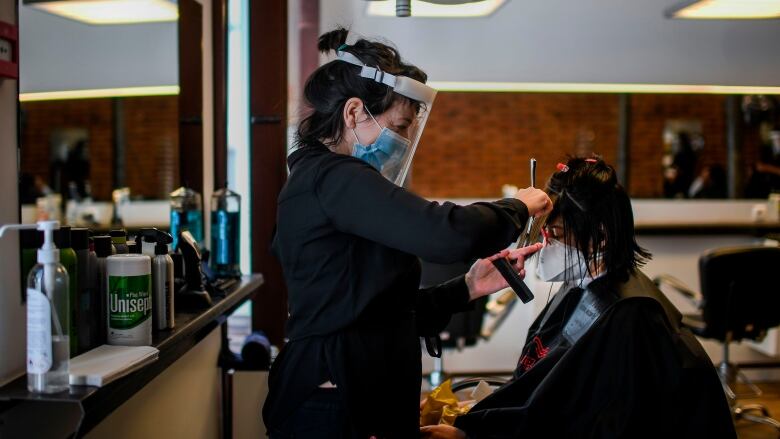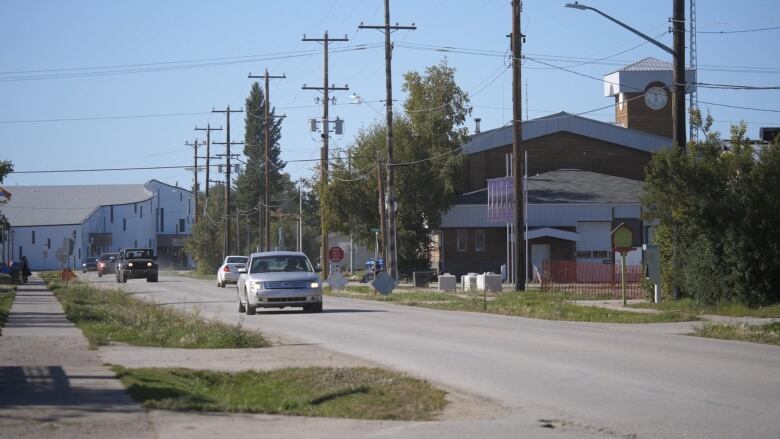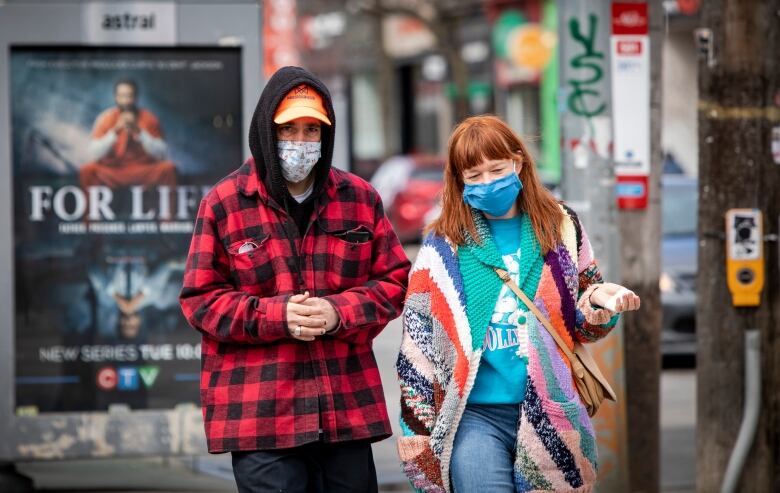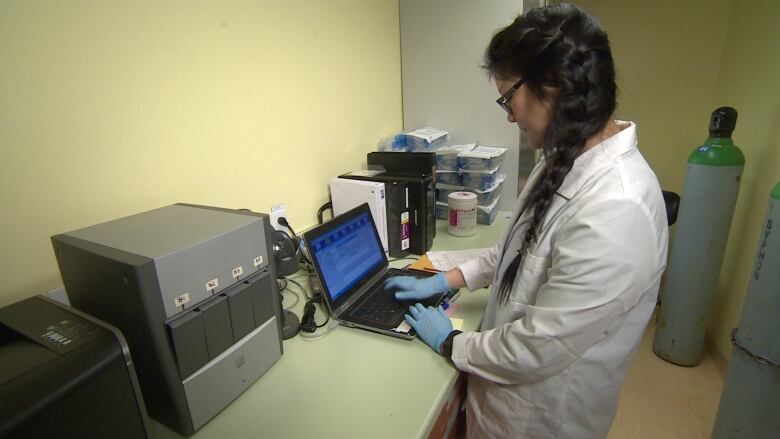Masks, tourism and driving with friends: N.W.T.'s top doctors take your questions
Dr. Kami Kandola and Dr. Sarah Cook took residents' questions as N.W.T. prepares to reopen

The Northwest Territories government has released its plan for reopening the territory amidthe COVID-19 pandemic, and on Thursday, two of the doctors behind the plan took your questions about it.
N.W.T. Chief Public Health Officer Dr. Kami Kandola and territorial medical director Dr. Sarah Cook joined host Loren McGinnisfor a one-hour call-in show, answering questions from listeners about the pandemic and the territory's response.
N.W.T. residents asked about masks, tourism, driving in cars with friends andmore. Here are some of the highlights.
We're allowed to have up to 5 visitors inside our homes, but what about in our cars?
Kandola said yes, in phase one of the territory's reopening plan, which could start as early as Friday, people will be allowed to ride in vehicles with those from their friendship circles.
She encourages everyone to keep their friendship circles to a small, consistent handful of people, rather than a rotating cast.
Kandola also recommends that people wear non-medical masks while riding in cars, since physical distancing isn't possible, and to keep the windows rolled down in summer, to allow for good airflow.

Are there plans to make masks mandatory?
The use of a non-medical maskis strongly recommended in situations where physical distancing isn't possible, said Kandola, but there are no plans to make them mandatory.
She said physical distancing is still the strongest defence against COVID-19 infection, and that a mask is not a replacement.
A public health advisory issued April 7 explains how to wear a non-medical mask, which fabrics to use, and when to wash it.
How and when will the N.W.T. reopening plan be translated into Indigenous languages?
Kandola said officials are working to translate the "Emerging Wisely Plan" into Indigenous languages for social media and radio first.
She said radio is the fastest way to get the information out in different languages, and that people should be hearing those messages "shortly."

When will the territory be open to tourism again?
"We are still seeing over 1,000 new cases a day in the rest of Canada," said Kandola, as well as community transmission in the South.
While Canada's borders remain closed to international travel, there is still a risk of spread in the North related to domestic travel.
Kandola said three of the territory's five cases confirmed COVID-19 cases were connected to domestic travel, so that's the N.W.T.'s primary risk factor right now. The other two cases were related to international travel.
Kandola said officials will continue to monitor the situation south of the N.W.T.'s border, but she didn't say when the territory would reopen to tourism.
Where are we at with testing?
The recall of the Spartan Bioscience cube limited the territory's ability to offer widespread rapid testing, said Cook.
She said the N.W.T. Health Department has another one-hour testing device, the GeneXpert, but it must be used at a "higher level lab" at Stanton Territorial Hospital. The issue with this device, said Cook, is that its materials are in short supply across Canada.
All this means that the territory's highest-risk patients will be prioritized for rapid testing, she said.
The N.W.T. currently has two GeneXpert devices and two more on the way, said Cook.

When will elective surgeries start?
Elective surgeries started May 4 and the territory is currently operating at half capacity, said Cook. She said joint replacements are set to start next week.
Cook said the hope is to be at full capacity by June, but that could change at any time depending on the course of the pandemic.
Hospitals are still screening for COVID-19 and working under new protective measures, which are slowing down the system, she said.
As always, Cook added, surgeries are being booked based on urgency and on how long a patient has been on a waitlist.
Is there a risk associated with hunting geese and ducks? And what about handling cash?
Birds can contract coronavirus, but they don't have this particular novelcoronavirus, said Kandola. Geese are safe to hunt, cook and eat.
Missed the call-in show? Watch it here:
With cash, and any other highly-touched item, it's important to wash your hands or use hand sanitizer after handling it, said Kandola.
She also said to "avoid touching your eyes, nose and mouth so you're not accidentally infecting yourself with whatever virus is on those surfaces."












_(720p).jpg)


 OFFICIAL HD MUSIC VIDEO.jpg)
.jpg)



























































































